A candlelight vigil was held Wednesday in La Ronge, Sask., to support Métis fiddle player Tristen Durocher’s advocacy for a legislated suicide prevention strategy in the province.
The issue hits home for residents, who shared their experiences at the gathering. Emergency medical services personnel, teachers, mental health workers and local business owners were on site to show their support.
“I’ve lost 13 students to suicide since I started teaching. I’ve done probably over 200 interventions and some multiple times with the same person,” teacher Sarah Poole told the crowd.
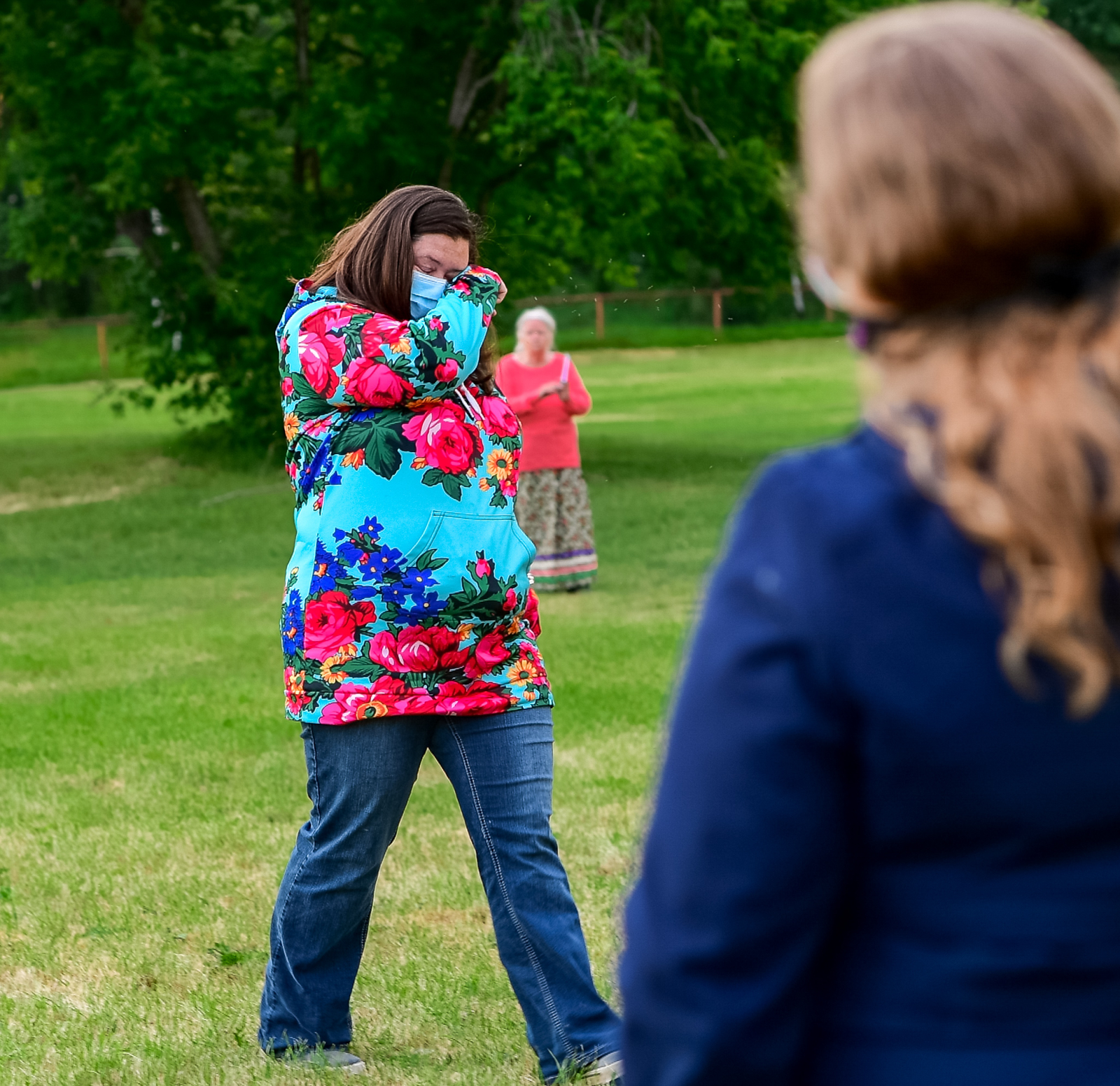
“Sometimes it didn’t work. When I was younger than Tristen, a little 11-year-old girl… hanged herself.”
Poole said she “did what all good white girls do” and joined a committee.
Durocher and Christopher Merasty walked more than 600 kilometres from La Ronge to Regina last month calling for government action to address the high suicide rates in northern Saskatchewan.
Upon arrival in Regina, Durocher began a hunger strike. The 44-days he plans to fast points a finger at Saskatchewan Party MLAs who unanimously defeated a suicide prevention bill put forward by Cumberland NDP MLA Doyle Vermette this spring.

“Seven reserves have declared states of emergencies. What good did that do? We kept digging graves. Politicians came for a weekend, took a few photos, called that consultation and continued to do nothing,” Durocher told Canada’s National Observer in July.
Rural and Remote Health Minister Warren Kaeding released Pillars for Life: The Saskatchewan Suicide Prevention Plan in May, which outlines a collaborative approach to suicide prevention.
“The tragic loss of a person by suicide is felt not only by family and friends, but by the entire community. We want to assure the public that suicide prevention is a priority for the government of Saskatchewan,” spokesperson Matthew Glover told Canada’s National Observer in July as Durocher and his supporters headed to Regina.
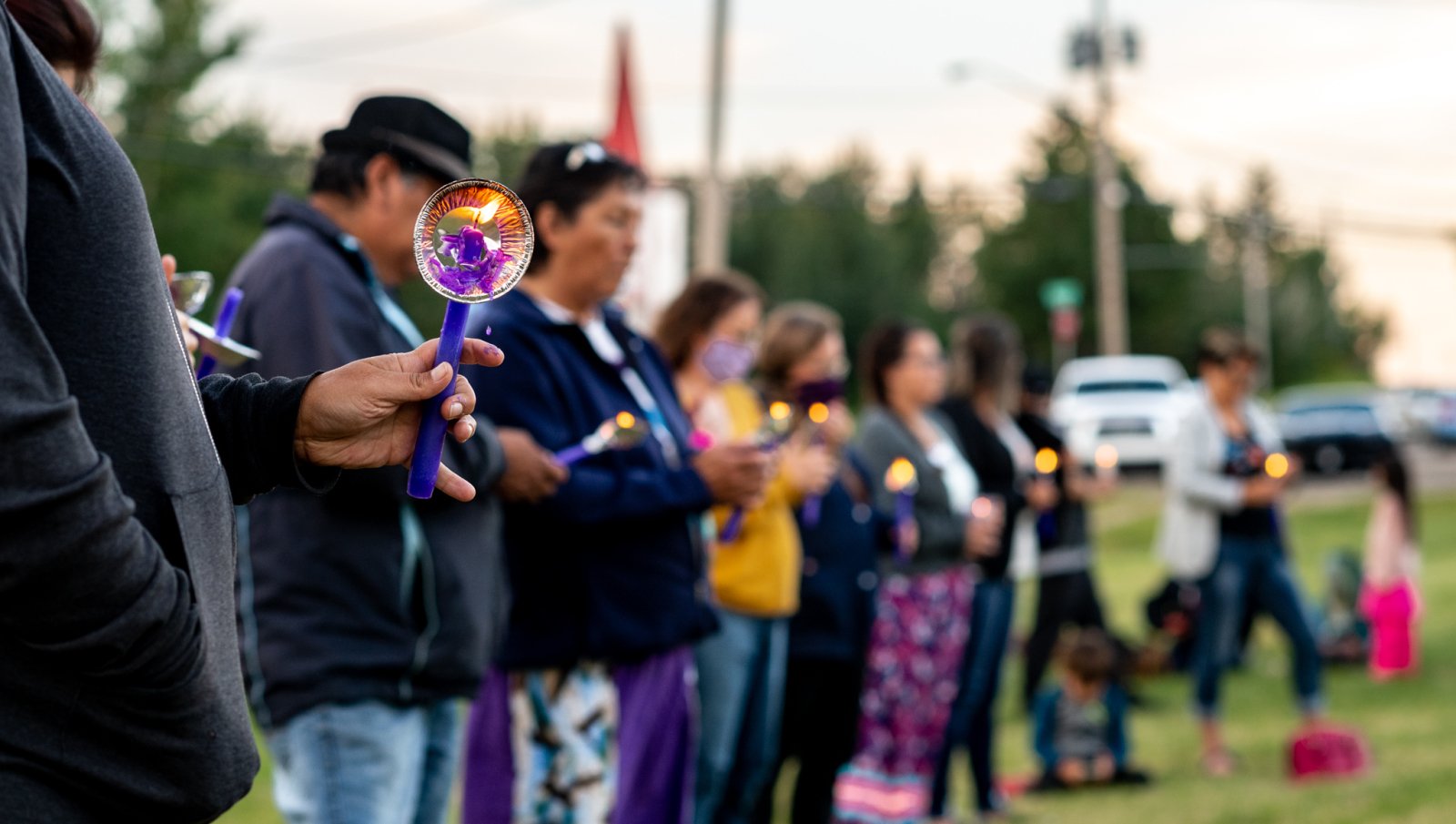
“Our government is always open to conversations about how we can make improvements to the challenges of mental health and suicide,” Glover said.
“I’m 47 and since I was younger than Tristen, I’ve been following the rules all this time. I have taken the training and I have worked with the kids and I have done everything that I could... When I was in La Loche, we lost one kid a month for six months,” Poole said.
Leaders in both La Loche and La Ronge have described the situation as an epidemic over the years. But Poole said help is inconsistent and temporary.
“Whenever there’s a crisis, they send people in and that’s great… But you know what happened? Three years later, there weren’t any more suicides, so they fired a counsellor,” Poole said.
“You only get the help after a kid dies.”

Cree Elder John Halkett stressed the importance of staying connected with loved ones and keeping children close with their families, "so that we don't lose them."
"It's always a challenge, but we have to take that step,” Halkett said.
“How many thousands of steps did (Durocher) take to be where he is right now, to be fasting for us and to show the politicians and people that are in power where his heart is?”
Durocher and Merasty have inspired at least one youth in La Ronge through their endeavours, too.
“The fact that they went for that walk down to Regina meant a lot to me because I’ve lost people to suicide. It hits way more hard when you know it was suicide than natural causes… Suicide is a scary thing to think about,” 15-year-old Anthony Isbister said.
“It felt good knowing that there’s people out there, because I've been that far down in the hole where I felt like I couldn’t do anything about it, where I felt so alone. But there are people out there to help you,” Isbister said.

“It’s always important to reach out to one of your friends. Especially with the government saying no to that suicide prevention (bill).”
Merasty, who founded a support group for men called Men of the North, went along with Durocher to offer protection. He is now back in La Ronge.
Merasty shared that when he lived in the northwest community of La Loche, he saw many suicides.
“In La Loche, we were losing about three or four kids a week to suicide. Back in 2012-2013, (La Loche) put in a state of emergency but nothing happened.”
What brought the issue home to him was when his daughter tried to take her own life twice last year. Merasty felt helpless because he works at Cigar Lake mine, an eight-hour journey north by road from his family in La Ronge.
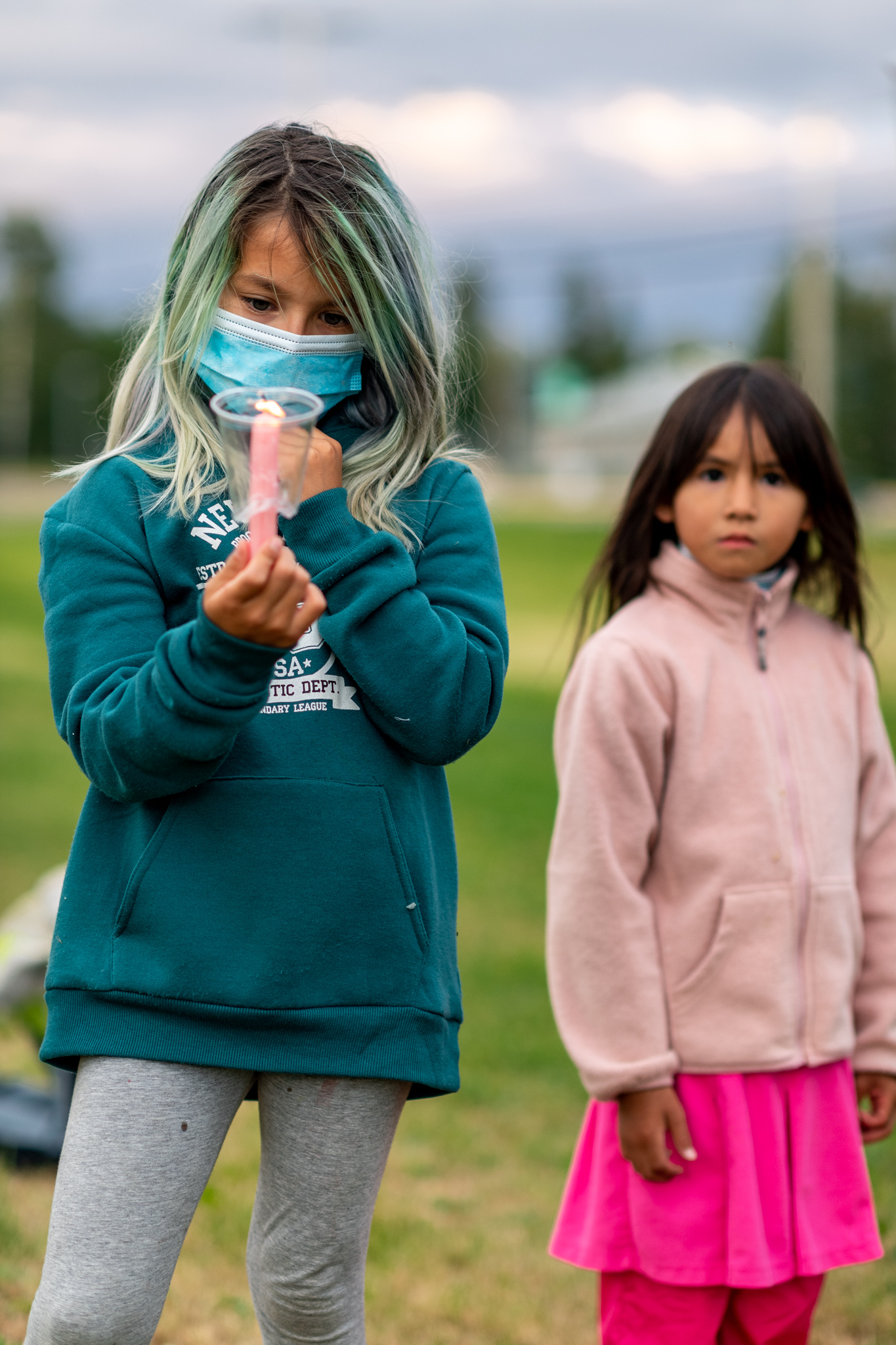
“For me, that was a very difficult situation because I work way up in the mines and hearing this happening at home… This walk was for hope and I believe that we gave a lot of people hope,” Merasty said.
He said that during the walk, support from passersby waned as they worked their way south to Regina. He said onlookers stopped honking in support, and began making obscene gestures and using racial slurs.
"Walking over 600 kilometres to open up those people’s eyes was something that needed to be done,” Merasty said.
“Suicide affects so many people, so many families and so many communities. Not only here in La Ronge.”
Kaeding and Lori Carr, minister responsible for First Nations, Métis and northern affairs, met with Durocher in Regina last Wednesday and thanked him for advocating for suicide prevention.

The government confirmed the meeting in a statement to the press and maintains that Pillars For Life is its plan to address suicide in the province.
“The ministers appreciate Mr. Durocher’s advocacy on this issue and welcomed the opportunity to further this important conversation.”
That didn’t stop the province and the Provincial Capital Commission from filing an application for a court order to have Durocher and his companions “vacate and cease occupying the land.”
The request lists Durocher as a respondent among “other persons operating as, and in support of, ‘Walking With Our Angels' (the name used for Durocher’s movement),” citing the Recovery of Possession of Land Act.
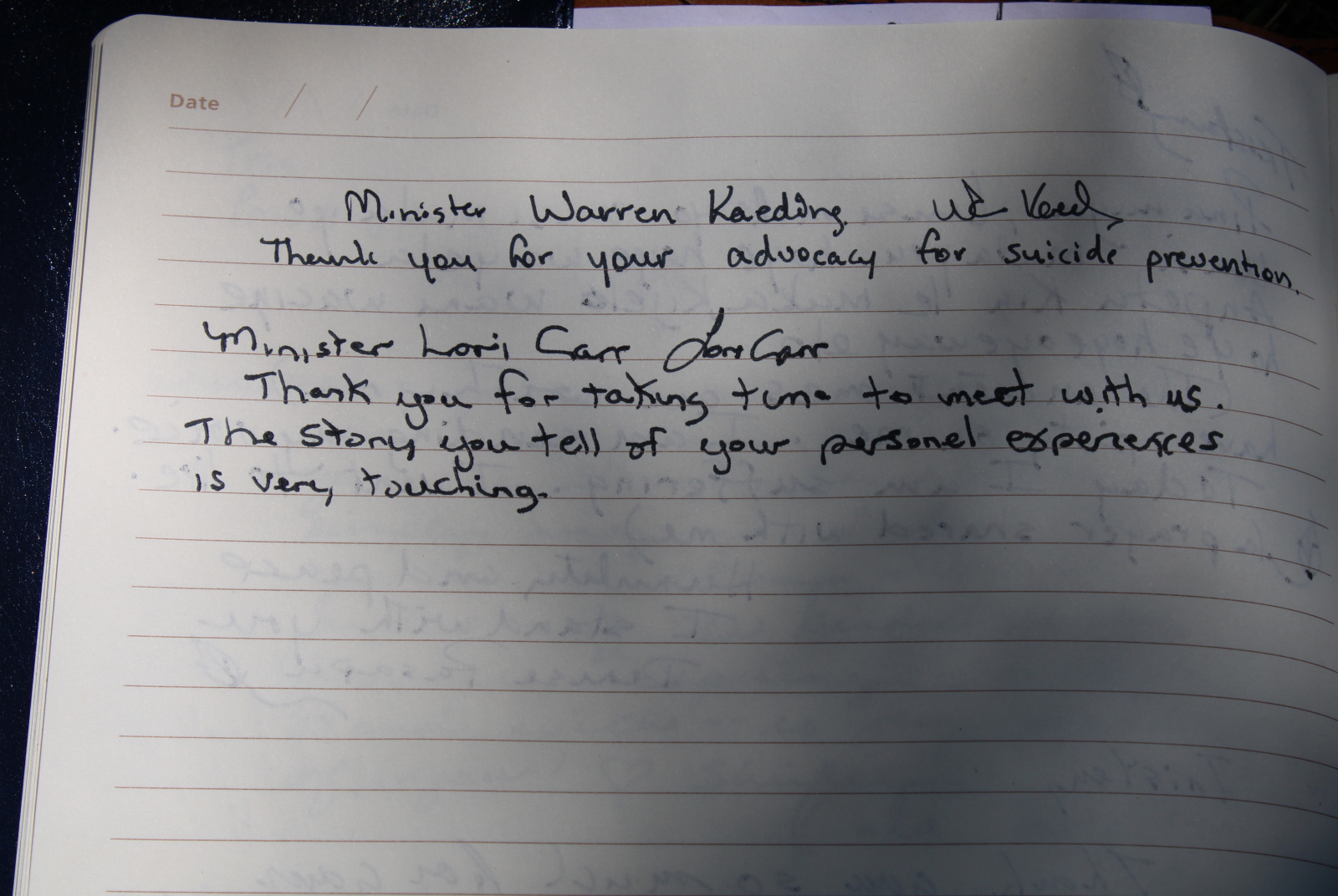
“For them to not even let a couple of people from the north camp in a 24-foot diameter space on stolen lands, it’s less than ironic, it’s dark comedy,” Durocher told Canada’s National Observer in Regina.
The motion also states that the protest breaks Wascana Centre bylaws under The Provincial Capital Commission Act.
Durocher said forcing him to leave would violate the right to peaceful protest, the rights of Indigenous people to the land and religious practice.

“They are willing to violate Canada’s Charter of Rights and Freedoms, one of the highest laws, with a municipal bylaw,” Durocher said.
Durocher’s aunt, Jackie Durocher brought up her nephew’s Thursday court date, where he was to defend his presence outside the legislature building.
“It’s going to be a tough day… We have a lot of people there supporting him and praying for him, but I ask for prayers for my family.”
On Thursday, a judge at the Court of Queen's Bench in Regina pushed Durocher’s hearing to Sept. 4. at the request of his lawyer Eleanore Sunchild.
Durocher described the appointment, which he did not attend personally, as “anticlimactic” and is staying where he is.

Provincial lawyers had pushed for the issue to be settled sooner. Durocher’s fast is set to end Sept. 13 unless the province passes legislation before then.
Poole was choking back tears, but made it through her speech. She said Durocher’s actions seem radical to some, but that in her experience, committees don’t work.
“I’ve been following the rules for over 20 years and it hasn’t done anything… I have zero faith that people down south give one good damn about our children. Not one. Not one,” Poole said.
“I’m done with committees and I’m done with hearing big promises from the government and I’m really done with people coming to help us or to fix us and then all that drying up. We need permanent legislation and funding for real mental health in this province. However we get it. I’m done with committees.”
Michael Bramadat-Willcock/Local Journalism Initiative/Canada's National Observer
If you are or someone you know is experiencing suicidal thoughts, help is available at all hours. Support can be found at the Canada Suicide Prevention Service website. If you are in immediate danger, you can call 911.
You can learn more about suicide prevention in the province at Saskatchewan.ca.
This is all so hard to read!
This is all so hard to read! We need way better education ( history through Indigenous eyes) so people can open there eyes and have way more empathy for our Indigenous peoples! We have made them feel helpless and that they have no worth and this needs to change, the least we can offer is education and better mental services and most importantly get rid of the untrue notion all Natives are drunks and lazy! I lived on a reserve for 11 years and made many friends and listened to the Elders stories and also watched many “white” people come through and feel it was there right to rant at the Elders at the local store and it was embarrassing! Lucky for me I was a middle aged white women with no problem putting an old white man in his place especially when they are the biggest drunks on the reserve! These dirty old men also seem to subscribe to the notion that every young Native girl is looking for an old white guy to look after them- I heard comments directed at the “under 16” girls working at the store that my Dad would have pulled out the “farmers helper” to deal with them. We need a total reset in our thinking and unfortunately I feel we need way more “white” voices standing up for our brothers and sisters!
Thanx, Merci, Megwitch for
Thanx, Merci, Megwitch for this article. I have posted it out.
This is all so hard to read!
This is all so hard to read! We need way better education ( history through Indigenous eyes) so people can open there eyes and have way more empathy for our Indigenous peoples! We have made them feel helpless and that they have no worth and this needs to change, the least we can offer is education and better mental services and most importantly get rid of the untrue notion all Natives are drunks and lazy! I lived on a reserve for 11 years and made many friends and listened to the Elders stories and also watched many “white” people come through and feel it was there right to rant at the Elders at the local store and it was embarrassing! Lucky for me I was a middle aged white women with no problem putting an old white man in his place especially when they are the biggest drunks on the reserve! These dirty old men also seem to subscribe to the notion that every young Native girl is looking for an old white guy to look after them- I heard comments directed at the “under 16” girls working at the store that my Dad would have pulled out the “farmers helper” to deal with them. We need a total reset in our thinking and unfortunately I feel we need way more “white” voices standing up for our brothers and sisters!
I posted this yesterday and
I posted this yesterday and this morning we got a call that one of the young men who spent so much time at our house and made my husband laugh so much took his life last night and I am gutted with grief.





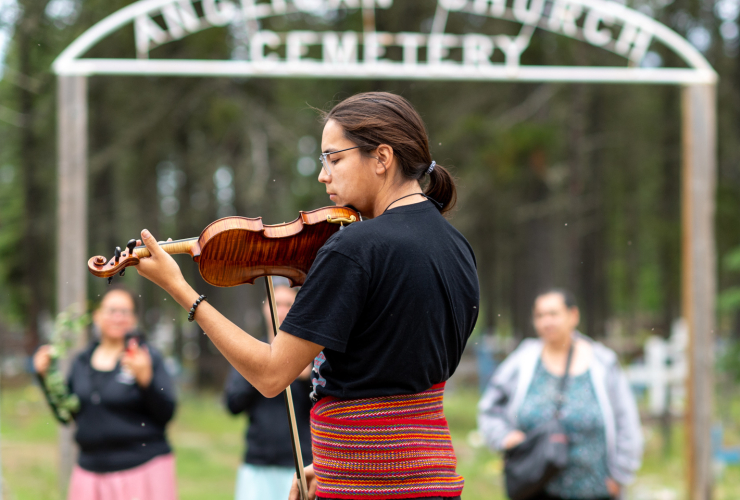



Comments